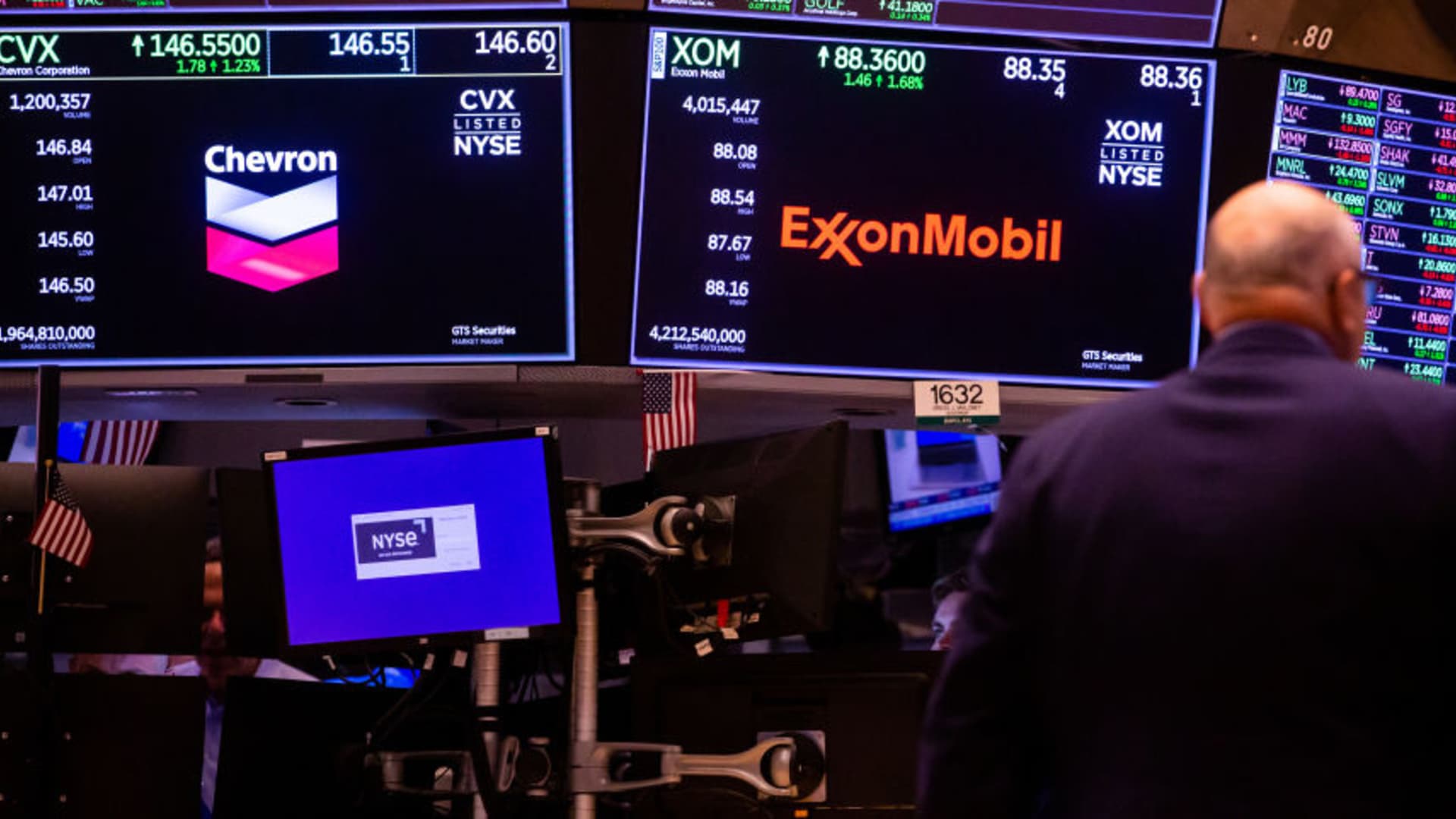Investing
Fund manager suggests Chevron could surpass Exxon if dispute over Guyana assets is resolved in 2021.

Exxon Mobil and Chevron are currently engaged in a high-stakes feud over offshore oil assets in Guyana, which could ultimately determine the top-performing stock of the two this year. This conflict has become a focal point for investors as Exxon has significantly outpaced Chevron in stock performance so far in 2024. The dispute revolves around the Stabroek Block development in Guyana, where Exxon leads with a 45% stake, while Chevron is seeking to enter the fray through its pending acquisition of Hess Corp, which holds a 30% interest in Stabroek. Hess shareholders recently approved the Chevron merger, but the timing of the deal’s completion remains uncertain.
Kevin Holt, the senior portfolio manager of the Invesco Energy Fund (FSTEX), believes that the outcome of the arbitration between Exxon, Chevron, and Hess will have a significant impact on the stocks’ performance in the second half of the year. If Chevron and Hess win the arbitration, Holt expects Chevron to outperform Exxon. Conversely, if Exxon prevails, he predicts that Exxon will continue its current outperformance. The Guyana development is seen as a highly lucrative project within the oil sector, with productive wells and low costs, making it a key battleground for the two oil giants.
Chevron has faced production challenges in the Permian Basin and cost overruns at its Tengiz project in Kazakhstan, which have affected investor sentiment. In contrast, Exxon has executed relatively well this year, leading to its outperformance. The historical performance of the two companies also shows a reversal, with Exxon emerging as the stronger performer since 2020. Holt attributes this shift to Exxon’s implementation of capital discipline and its strategic positioning in the Guyana offshore development.
The arbitration process is expected to be a key determinant in the resolution of the conflict between Exxon and Chevron. Hess has sought an outcome by the fourth quarter, but Exxon has indicated that the process could extend into 2025. Holt believes that historical precedent favors Chevron and Hess in the arbitration case, as a right of first refusal has not typically derailed corporate-level deals in the past. The resolution of this dispute, along with Chevron’s other operational challenges in Tengiz and the Permian Basin, could provide a positive backdrop for the company’s future performance.
Overall, both Exxon and Chevron are viewed as reasonably priced and well-positioned within the market, according to Holt. The outcome of the arbitration over the Guyana assets is likely to play a significant role in determining the trajectory of the two companies’ stocks in the coming months. Investors are closely monitoring the developments in this conflict, which has become a focal point in the energy sector and could have far-reaching implications for the industry as a whole.

-

 News7 days ago
News7 days agoHave you experienced a ‘ghost poop’? Discover what doctors say about this bizarre phenomenon as TikTok users share videos of their puzzling experiences in the bathroom
-

 Wellness6 days ago
Wellness6 days agoThe Benefits of Knitting and Similar Hobbies: How They Can Help You Feel Calm, Focused, and Content
-

 Investing7 days ago
Investing7 days agoThese high-dividend stocks boosted the Dow to new levels. How would you have done if you invested in them and held onto them?
-

 Finance6 days ago
Finance6 days agoFrance seeks to establish itself as a major player in the global AI industry, with assistance from U.S. Big Tech companies
-

 News7 days ago
News7 days agoTrump Found Guilty in Fox News Politics
-

 News7 days ago
News7 days agoCohen believes that the Trump hush money verdict is ‘precisely what America needs at this moment’
-

 Sport7 days ago
Sport7 days agoChristian McCaffrey still haunted by costly fumble in Super Bowl, says 49ers star and coach
-

 News7 days ago
News7 days agoSupreme Court Unanimously Rules in Favor of NRA’s Free Speech Challenge in New York












